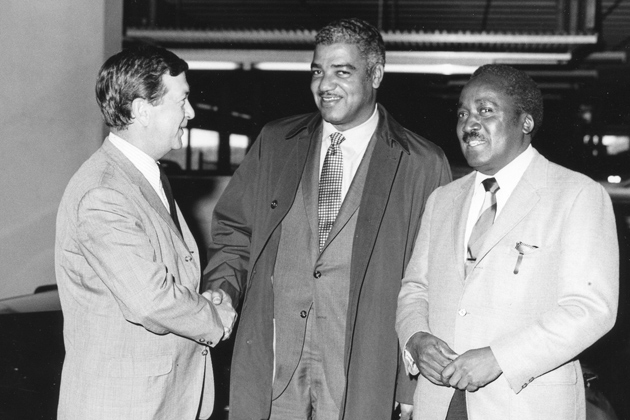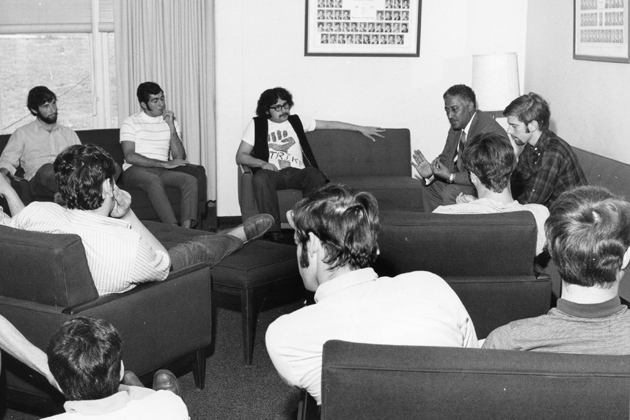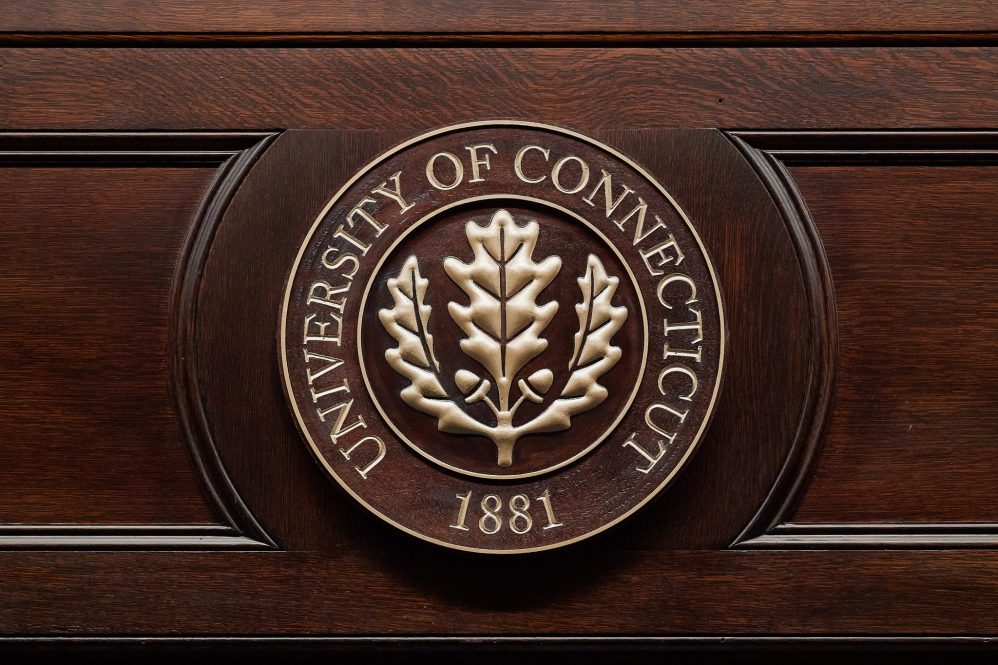Updated from a previously published article by Mark J. Roy in the UConn Advance newspaper (Nov. 12, 2001).

A day. A week. Ten days. One month.
Thirteen times since 1970, the University has designated periods of time such as these as an opportunity to pause, consider, and debate issues facing the community, the nation, or the world.
This semester, through Nov. 1, UConn is again observing a period of Metanoia – a time of reflection, focused on Civility, and how we choose to behave and engage in interpersonal relationships.
Civility was also addressed in 1999, prompted by violence during Spring Weekend that year. The month-long series of events was called “Husky Renaissance;” actor and social activist Danny Glover was a key speaker.
“Within the larger context … each individual has to feel, in fact, has to know that they matter,” Glover said. “Knowing that your voice matters; knowing that your vision matters; knowing with absolute certainty that your particular story is a unique contribution to the whole – that recognition is an important one, because it means that the community that you are a part of is a caring one.”

The first Metanoia, observed on May 6, 1970, included an address at Jorgensen Auditorium by the executive director of the National Urban League, Whitney Young, on the issue of race in America. “We are in trouble in America,” Young noted, “because America has lived a lie” in regard to race relations.
Of UConn’s 13 previous observances, five have dealt with issues of race: 1970 was an examination of racial awareness, racial respect, and racial sensitivity; in 1979, race was part of an overall review of violence in American life; and in 1990, race was part of an overall look at cultural diversity, free speech, and discriminatory harassment. Race was also included in 1999’s “Husky Renaissance” discussions on campus community and civility; and in 2000, when the central topic was diversity.
Other observances have looked at national and international issues: the Vietnam War in 1972; the constitutional crisis relating to President Richard Nixon’s entanglement in the Watergate affair; world hunger in 1975; world peace in 1987; and in 2001, a four-day Metanoia focused on the terrorist attacks of Sept. 11.
Metanoia in 1994 was an introspective look at the University and its future, stemming from that year’s ongoing strategic planning process.
A week-long Metanoia in October 1995 coincided with the opening of UConn’s year-long observance of “Fifty Years After Nuremberg: Human Rights and the Rule of Law.” Both events began with the dedicated of the Thomas J. Dodd Research Center on October 15, 1995.
Most of these events followed months of planning by committees that scheduled panel discussions, special lectures, films, exhibits, and performances.
In 1979, however, a Metanoia was put together in less than a week. It came in the wake of a number of racial incidents on campus at the beginning of the fall semester. Then in late September, a graduate student was brutally assaulted while jogging. She was in a coma for nearly three weeks, hospitalized for three months, and had to go through two years of rehabilitation therapy.
Her identity was never made public, but her ordeal was a flashpoint for concern in the University community regarding violence in America. The need for public action became a call for a temporary moratorium on classes, and UConn’s fifth Metanoia was held in early October 1979.
“To me, ladies and gentlemen, a community is an extended family with the level of caring and involvement which protects an individual’s right to be different but not indifferent,” said UConn President John DiBiaggio during the Oct. 4, 1979 Metanoia. It was his first opportunity to speak to students and faculty since being named University president that year.
“The impact of each violent event ripples through the campus, precipitating feelings of enormous anxiety and, I hope, feelings of absolute abhorrence.
“But such feelings are clearly not enough if they are not coupled with actions which will prevent reoccurrence,” DiBiaggio said.
The 2009 Metanoia coincided with the 30th anniversary of the “Violence in the Community” Metanoia, and encouraged the campus community to reflect not only on how far the University had come since 1979, but also on continual change in attitudes and percepts surrounding violence against women.
Terrorism was one topic of the 1987 observance that examined world peace. The speaker was Barry Rosen, one of the former hostages held by fundamentalists of the Ayatollah Khomeini’s regime from Nov. 4, 1979 to Jan. 20, 1981. Rosen defined terrorism as “the use of force to make a political statement” where there is “harm to ordinary people.”
At the same April 22, 1987 Metanoia, Nobel Prize-winning chemist and peace activist Linus Pauling was the keynote speaker, calling on all people to become part of the peace movement, “to achieve a world that no longer tolerates war as national policy.”



